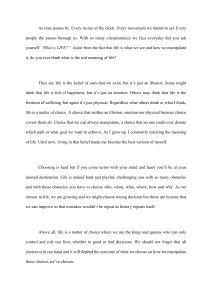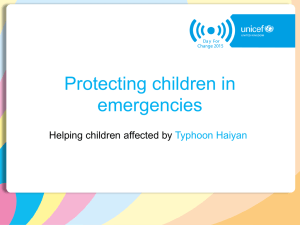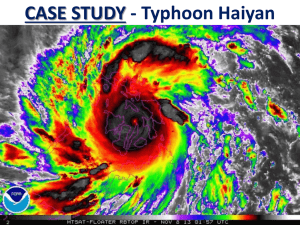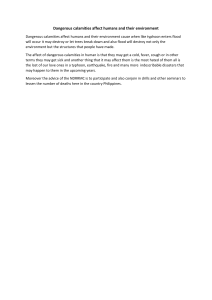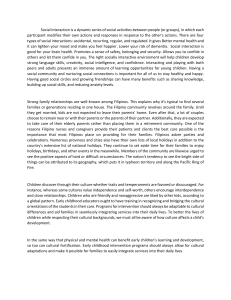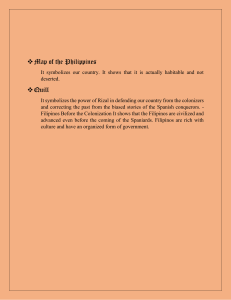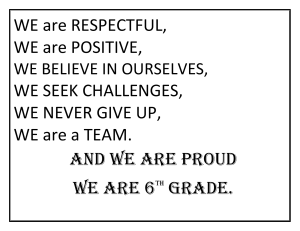Disaster Preparedness Reflection: Philippines & Typhoons
advertisement
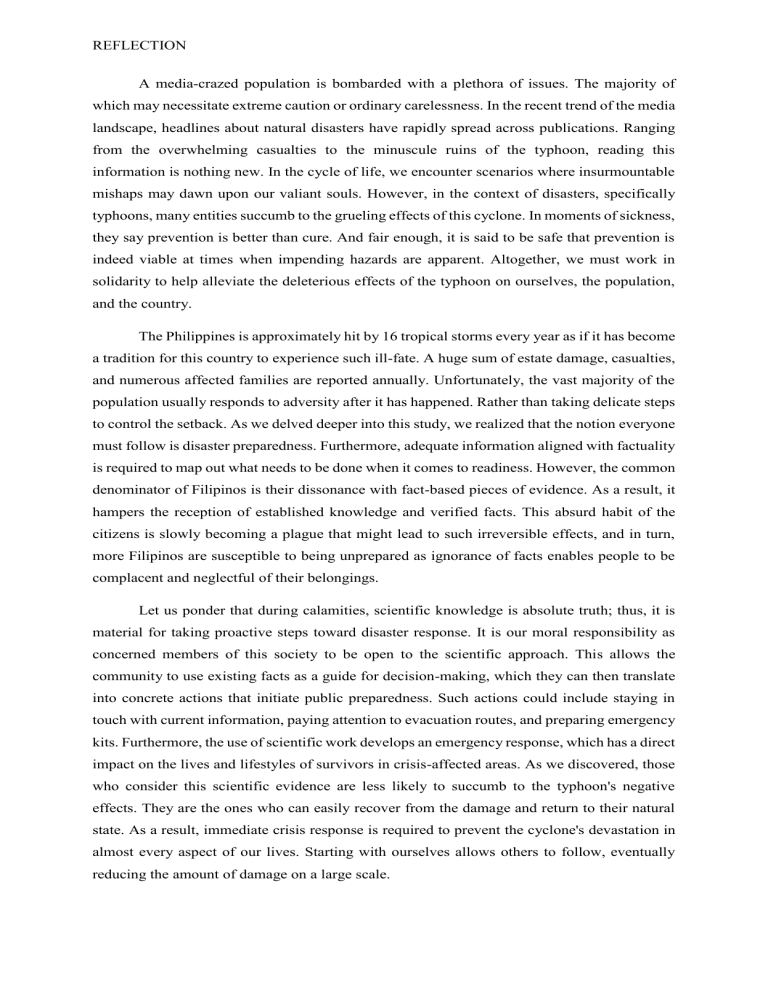
REFLECTION A media-crazed population is bombarded with a plethora of issues. The majority of which may necessitate extreme caution or ordinary carelessness. In the recent trend of the media landscape, headlines about natural disasters have rapidly spread across publications. Ranging from the overwhelming casualties to the minuscule ruins of the typhoon, reading this information is nothing new. In the cycle of life, we encounter scenarios where insurmountable mishaps may dawn upon our valiant souls. However, in the context of disasters, specifically typhoons, many entities succumb to the grueling effects of this cyclone. In moments of sickness, they say prevention is better than cure. And fair enough, it is said to be safe that prevention is indeed viable at times when impending hazards are apparent. Altogether, we must work in solidarity to help alleviate the deleterious effects of the typhoon on ourselves, the population, and the country. The Philippines is approximately hit by 16 tropical storms every year as if it has become a tradition for this country to experience such ill-fate. A huge sum of estate damage, casualties, and numerous affected families are reported annually. Unfortunately, the vast majority of the population usually responds to adversity after it has happened. Rather than taking delicate steps to control the setback. As we delved deeper into this study, we realized that the notion everyone must follow is disaster preparedness. Furthermore, adequate information aligned with factuality is required to map out what needs to be done when it comes to readiness. However, the common denominator of Filipinos is their dissonance with fact-based pieces of evidence. As a result, it hampers the reception of established knowledge and verified facts. This absurd habit of the citizens is slowly becoming a plague that might lead to such irreversible effects, and in turn, more Filipinos are susceptible to being unprepared as ignorance of facts enables people to be complacent and neglectful of their belongings. Let us ponder that during calamities, scientific knowledge is absolute truth; thus, it is material for taking proactive steps toward disaster response. It is our moral responsibility as concerned members of this society to be open to the scientific approach. This allows the community to use existing facts as a guide for decision-making, which they can then translate into concrete actions that initiate public preparedness. Such actions could include staying in touch with current information, paying attention to evacuation routes, and preparing emergency kits. Furthermore, the use of scientific work develops an emergency response, which has a direct impact on the lives and lifestyles of survivors in crisis-affected areas. As we discovered, those who consider this scientific evidence are less likely to succumb to the typhoon's negative effects. They are the ones who can easily recover from the damage and return to their natural state. As a result, immediate crisis response is required to prevent the cyclone's devastation in almost every aspect of our lives. Starting with ourselves allows others to follow, eventually reducing the amount of damage on a large scale. REFLECTION However, let’s face it, the rigid dichotomy between facts and opinion has been ignored by many people, especially during calamities. A large majority of people regard opinions as facts or vice versa, which is concerning. The widely held belief that knowledge is power, and truth in knowledge, should not always be the case, because knowledge isn’t always factual, and this doesn’t confer power. When it comes to public safety, we must consider listening to science rather than our own "truths," because this enriches best practices that can help mitigate the storm's bleak outcomes. In light of the foregoing, the unavoidable foe we may encounter in the face of adversity is not the storm but ourselves. Whether we admit it or not, crises are a reflection of how we deal with life's most difficult challenges. One prominent example is the distinction between using scientific facts and unfounded opinion, which impedes decisionmaking on how to appropriately handle and manage the upcoming dangers. Let us remember that in this situation, it is best to be cautious about every decision we make, to be open to facts, and to think about the welfare of our fellow men. In times of difficulty, and as stewards of this country, we must exhibit the moral qualities of vigilance, open-mindedness, and empathy. These principles strengthen our resolve to be proactive and persevere in the face of adversity, transforming us into better role models for our community members. As a result, the "self" is also our ultimate ally in this yearly predicament. This fledgling nation’s stature is noteworthy of the recurring odyssey of catastrophe that leaves the population discombobulated and distressed. The common deficiency of its inhabitants is their proclivity to disregard essential materials such as accurate information, and this has altered the disaster response algorithm for ordinary citizens. One key point that struck us was that dissonance undermines the desire to take proactive measures to attenuate the destruction. Despite the myriad of hardships, most Filipinos fail to integrate the moral qualities mentioned in this article, which is why there has been no relative progress in response. However, because the vicissitudes of chance are inevitable, we can still effectuate all of the lessons acquired from this pragmatic experience and transmogrify them into practical steps. We can rely on those morals to overcome obstacles, influence others, and collaborate to embark on total societal transformation as long as we inculcate them into ourselves.
